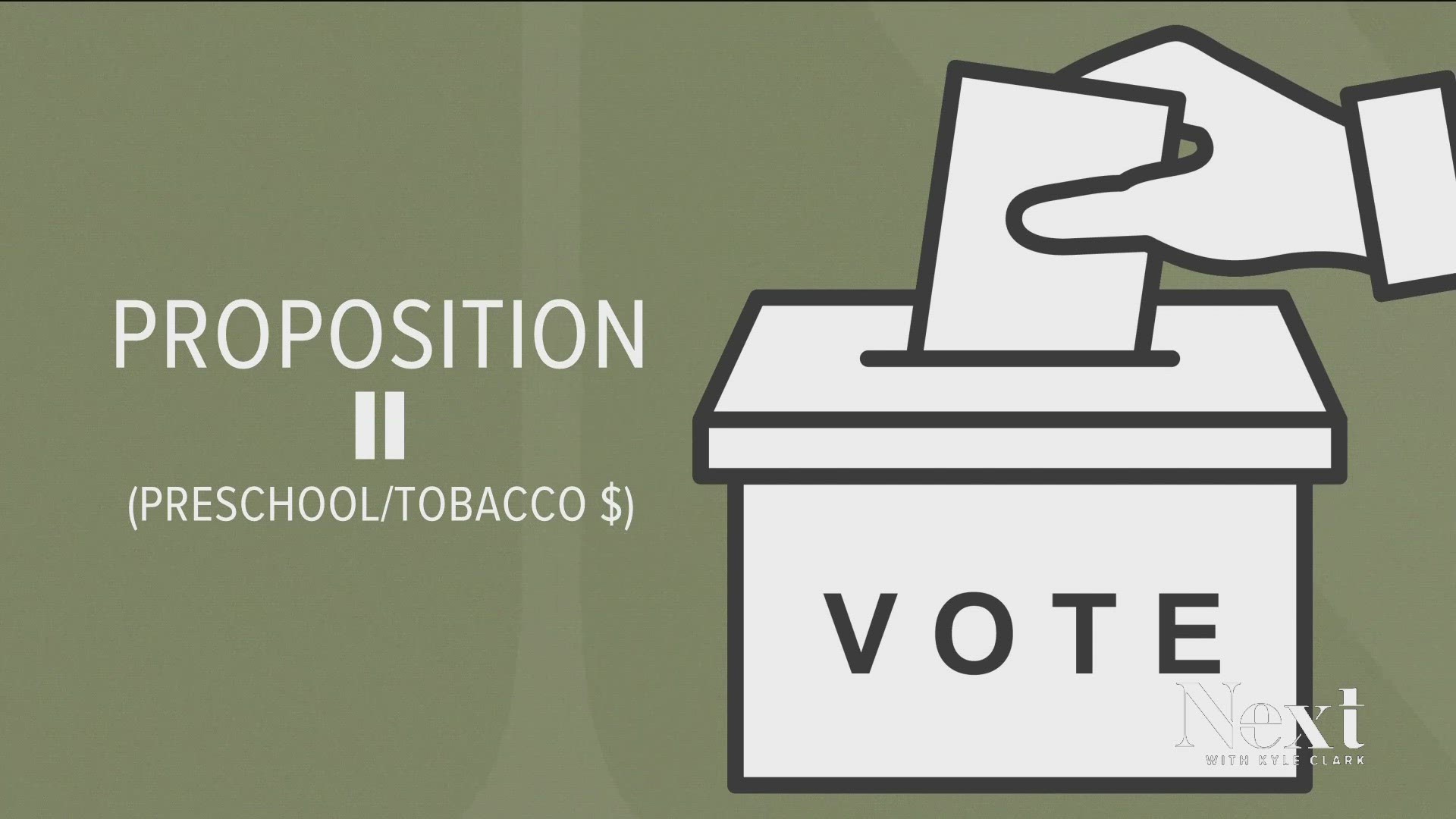DENVER — Colorado’s two biggest cities do politics their own way.
Denver and Colorado Springs held city elections this past spring.
Just about every other city has their election for city leaders and city issues in November.
The following list is not comprehensive. It is a snapshot of some of the biggest races and issues on local ballots.
STATEWIDE
Every registered voter will have these two issues on their statewide ballot.
Proposition HH – Property Taxes vs. TABOR (Taxpayer Bill of Rights) Refund
This issue, put on the ballot by state lawmakers, would reduce the future increase of property taxes for at least 10 years, but you allow the state to keep future TABOR refunds for 10 years or longer.
Do not confuse Proposition HH with a lowering of your property taxes. This would likely result in smaller increases in property taxes, but not a reduction of property taxes.
How does Proposition HH reduce the future increase in your property taxes? It would make a certain value of your property tax-free and also reduce the assessment rate that your home’s assessed value is multiplied by to determine the taxable value. Reducing the taxable value would reduce your property tax, but it will still likely be more than the previous property tax bill, just not as much as it would be without these provisions.
In addition to reducing the increase in property taxes, the state would be allowed to keep TABOR refunds for 10 years, with the option of state lawmakers to extend it without voter approval.
Proposition II – Retain Nicotine Tax Revenue Because of 2020 Underestimate
This issue, also put on the ballot by state lawmakers, would allow the state to keep funding for universal preschool that it underestimated in 2020.
When voters approved Proposition EE in 2020, increasing nicotine and tobacco taxes for universal preschool, the state-issued Blue Book underestimated how much money would be generated in the first year.
The state is only allowed to keep what was stated in the Blue Book, but it took in $23.65 million more in tax revenue.
Proposition II would allow the state to keep that excess revenue. If voters say no, the money will be refunded to nicotine and tobacco wholesalers and distributors and the 2020-approved tax on tobacco and nicotine would be reduced.
MAYOR ELECTIONS
Several metro area cities will elect new mayors in November.
Qualifying for the ballot to run for mayor requires – well, it requires you to be popular in your cul-de-sac.
Signatures required to qualify for mayor:
25 Signatures
- Arvada
- Boulder
- Broomfield
- Commerce City
- Fort Collins
- Golden
- Louisville
- Thornton
- Westminster
All those cities suggest more than 25 signatures in case someone signs who is not a registered voter in the city. However, Boulder limits candidates to no fewer than 25 and no more than 35.
50 Signatures
- Greenwood Village
- Littleton
100 Signatures
- Aurora
- Centennial
- Colorado Springs* (Held municipal election in April and May)
300 Signatures
Denver** (Held municipal election in May and June)
BALLOT ISSUES
Voters will also decide local ballot issues on top of the two statewide issues.
Boulder
Prioritize the removal of tents, temporary structures and propane tanks within 500 feet of a school or 50 feet of a multi-use path or sidewalk.
The city of Boulder already has an ordinance banning those items near parks and public spaces. This ballot issue adds the school distance and tells the city to make it a priority to enforce.
Fort Collins
One ballot issue would increase a sales tax to fund parks maintenance, greenhouse gas reductions and transit improvements.
Another ballot issue asks voters to increase their property taxes through a mill levy increase. The property tax increase would fund affordable housing in the city. The city calls this the first city property tax increase since 1992, but it comes at the same time homeowners received sticker shock from overall property tax bills.
Douglas County School District
DougCo Schools will also ask voters to increase their property taxes through a mill levy override. The money would go to increase teacher salaries.
Commerce City
Three separate ballot issues ask residents to allow:
- Backyard Chickens
- Backyard Ducks
- Backyard Bees
Ranked Choice Voting
For the first time, Boulder voters will select the mayor instead of city council choosing among councilmembers. And it will be done through the use of ranked choice voting.
With four candidates running for mayor, voters will rank their choices one through four on their ballot.
If the person with the most first choices does not get more than 50% after all ballots are counted, then the person with the least votes is eliminated and every ballot that had that person ranked first, then has their second choice counted.
That continues until someone gets more than 50%.
SUGGESTED VIDEOS: Full Episodes of Next with Kyle Clark

